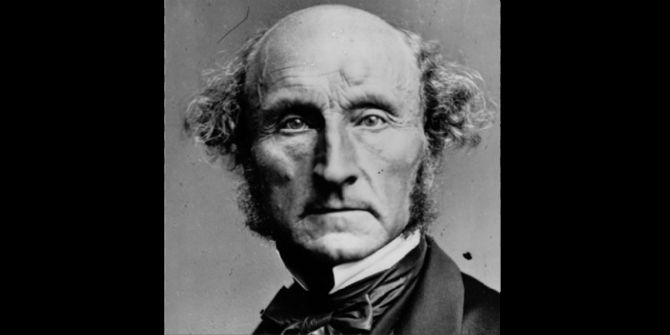 Britain has long been seen as the European Union’s “awkward partner”. Yet why have we only now come to a referendum on Britain’s membership? Ben Wellings explains why it is impossible to understand the politics of EU-UK relations without understanding the politics of nationalism within the UK
Britain has long been seen as the European Union’s “awkward partner”. Yet why have we only now come to a referendum on Britain’s membership? Ben Wellings explains why it is impossible to understand the politics of EU-UK relations without understanding the politics of nationalism within the UK
The anatomy of awkwardness
The expression “‘awkward partner”’ was coined in the late 1990s by Stephen George. The durability of this phrase relies upon the concept of ‘awkward’: a wonderfully British (although actually a middle class, southern English) disposition. Like the idea of Britain as a ‘semi-detached’ member of the EU, the brilliance of the concept rested on a link between the tenor and history of UK-EU relations with attitudes and experiences of the warp and weft of everyday life in England.
Yet the real importance of the concept of “awkwardness” was to (perhaps inadvertently) shift attention onto national identity and nationalism as a dynamic in UK-EU relations. Viewing the politics of nationalism within member-states as a critical dynamic in their relations with the EU fits in well with the notion of Euroscepticism as a “persistent and embedded phenomenon”. Furthermore, the return of Euroscepticism to mainstream British politics intriguingly correlates with the current round of nationalist politics in the UK since the 1990s.
England: the Scotland of Europe
“Awkwardness” has political consequences. I have tried to make the case elsewhere that a reaction to European integration should be seen as the main driver of contemporary English nationalism. Whilst nationalist movements in other parts of the UK were a necessary condition for the rise of English nationalism, they were not in themselves sufficient. Instead, resistance to European integration forged the ideological content of contemporary English nationalism. Euroscepticism can be seen as English nationalism by proxy, whereby English nationalists defend British sovereignty, and although still troubled by their northern neighbour, are really setting themselves against the threat to Britain’s sovereignty as posed by the EU.
Euroscepticism in England must be understood in primarily political rather than economic terms. Eurosceptics resented the idea of ‘ever closer union’. Fearful of losing sovereignty and political identity in a crisis-bound Union that appeared to be displaying centralizing tendencies, politicians, commentators and voters in England sought to reassert an autonomy they felt was under threat.
All of these concerns had a familiar ring to them. Fearful of losing sovereignty and political identity in a crisis-bound Union that appeared to be displaying centralizing tendencies, politicians, commentators and voters in Scotland sought to reassert an autonomy that they felt was under threat. Nationalists in Scotland and England were motived by the same desire to preserve national autonomy even if the political structure they sought autonomy from differed. For this reason, it is important to consider the politics of British and European disintegration together. In many ways England has now become ‘the Scotland of Europe’: vocally different, proud of this difference and with a significant minority of voters pushing for secession.
The fact that this has come to a referendum, however, is curious. Previously a referendum was seen as an un-British innovation: or, as one MP put it in 1975, “a nasty continental aberration”. Despite this opprobrium, the “continental aberration” recently embedded itself at Westminster, principally via theEuropean Union Act (2011) but also by David Cameron’s in-out referendum pledge on Britain’s EU membership. This important shift towards popular sovereignty came at the time when the notion of the “British People” as a category with a future was challenged by the growth of nationalisms in the United Kingdom.
There is an alternative
All this could be – and was – interpreted as traditional British awkwardness. But something had changed to make this analysis now only one layer of a deeper ideational shift that was taking place on the right of British politics. A corollary of the UK’s prospective disengagement from the EU was the search for new (or renewed) political communities to help ease the transition from Europe to something else.
A notable feature of this debate has been the return of the former Empire and Dominions to British political consciousness as part of the so-called ‘Anglosphere’. An increasingly vocal strand of opinion again on the right of British politics regarded the ‘Anglosphere’ as a natural and organic political community based on shared language and common political values.
Such views were not the sole preserve of UKIP, but were promoted in the Eurosceptic wing of the Conservative party too. Conservative MEP Daniel Hannan passionately promoted the idea of the Anglosphere in a tour of Ireland, the USA, Canada, Australia and New Zealand in 2012. He concluded that “there is a continuity of values that is immediately palpable to anyone who has travelled elsewhere”. These values, according to Hannan, set Britain apart from the EU and bound it deeply to other parts of the world.
Some of this could be dismissed as a post-imperial fantasy. Yet there has been a shift in policy that gives substance to the idea of enhanced cooperation amongst English-speaking countries. This renewed emphasis on long-standing and stable (if somewhat neglected) political relations chimed with calls for a political re-orientation away from Europe.
David Cameron’s Bloomberg speech in London announcing the official Conservative switch to a referendum was preceded by a speech by William Hague in Sydney. Speaking only days before David Cameron, Hague argued for even greater political cooperation between Britain and Australia. The two speeches were not unrelated. They were part of a wider strategy that sought alternatives to the EU as a politics of disengagement played out in Europe.
Britain – and most notably England – has recently moved beyond “awkwardness” in its relationship with the European Union, driven by the politics of nationalism and the United Kingdom’s own increasing awkwardness. European integration and British disintegration are increasingly causally related.
_____
This blog is based on the chapter ‘Beyond Awkwardness: England, the European Union and the end of integration’ in The United Kingdom’s Challenge to Europeanization, Chris Gifford and Karine Tournier-Sol (eds.). Basingstoke: Palgrave Macmillan, 2015.







2 Comments